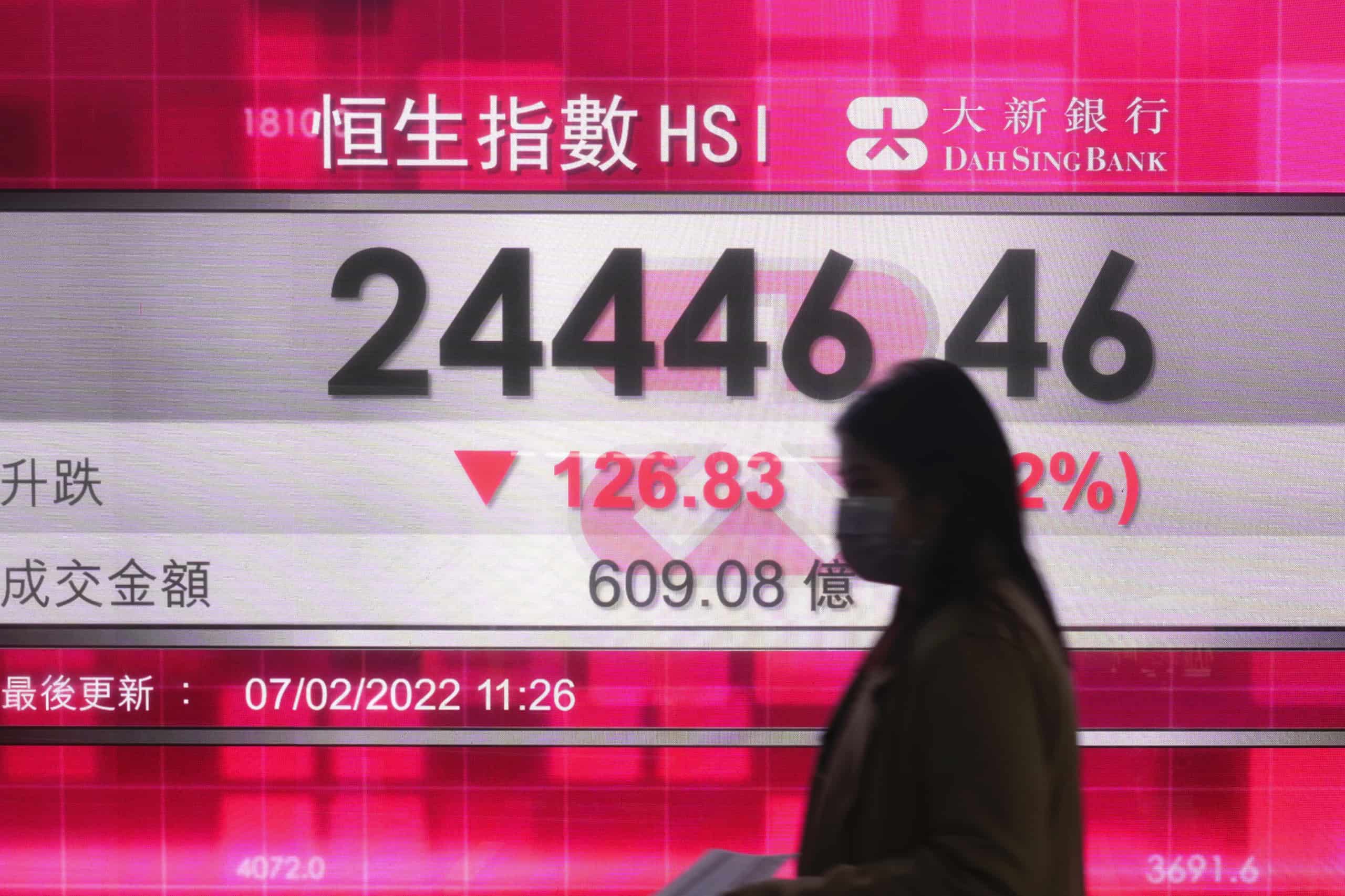
China’s stock market has been on a wild ride this past month. Amid slumping consumer confidence, stocks briefly crashed in mid-March before experiencing a record rebound after Beijing intervened with promises of market-friendly policies. Main indices still closed this quarter with record losses.
A number of factors are at play, including China’s ongoing battle to contain the Omicron variant, which has seen major cities including Shenzhen and Shanghai go into lockdown at different points this past month. Investors are also jittery over Russia’s invasion of Ukraine, given concerns about whether China could face the kind of economic isolation that has crippled Russia’s economy. Recent data shows that global investors have been pulling money out of China at an unprecedented rate since the invasion.
The market turbulence comes at a precarious moment for China politically, as Xi Jinping angles for an unprecedented third term as China’s leader at the upcoming Party Congress in late-2022. Facing a maelstrom of economic challenges, the country’s leadership has few easy solutions.
This week, The Wire takes stock of what’s going on with China’s stock markets and how investors are responding to the country’s economic challenges in a politically pivotal year.
THE BIG BOUNCE

The latest rout for Chinese stocks began at the start of this month, but it is really a continuation of the market slump that has dragged on since February 2021, ever since Beijing started pursuing a salvo of crackdowns, particularly against China’s flourishing tech companies. The selloff intensified in March following Russia’s invasion of Ukraine, and after the U.S.’s Securities and Exchange Commission began naming Chinese firms for possible delisting, amid an ongoing row over regulators’ access to Chinese audit records.
In mid-March, vice premier Liu He announced that the government would intervene with “policies that are favorable to the market,” and suggested that regulators should quickly wrap up their rectification efforts against China’s tech sector.
Those words sent Chinese stocks flying, with Hong Kong’s Hang Seng Index enjoying its best day since 2008 and Chinese indices making up many of their early losses. Nonetheless, the Shanghai Composite Index still closed down some 11 percent at the end of this quarter. Other indices have experienced their worst quarter since the 2015 stock market crash, including China’s CSI 300, which consists of the largest listed companies in Shanghai and Shenzhen.
RECORD FOREIGN INVESTMENT OUTFLOWS

It’s not just Chinese investors that are feeling jittery. Global investors have withdrawn money from China at an “unprecedented” level since late February, according to a recent report by the Institute of International Finance (IIF), a Washington D.C. industry trade group. Chinese media outlets have also reported on the capital outflow, attributing it to rising U.S. interest rates and the international fallout from Russia’s invasion of Ukraine.
But IIF researchers note that investment flows into other emerging markets have held up, and it is China in particular that is experiencing an outflow. That contrast, they say, is “unprecedented”: during both the trade war and the early months of the Covid pandemic, foreign investment into China remained steady, suggesting that the war in Ukraine may be forcing global investors to look at the country’s markets in a new light.
PROPERTY DEVELOPERS FLAIL

Investors and creditors are nervously watching China’s property developers after a record number missed a deadline in Hong Kong to report their annual results. Top developers including Sunac China Holdings, Shimao Group, Modern Land, Evergrande Group were among the firms that were suspended from trading by the Hong Kong Stock Exchange on Friday.
It’s hard for investors to gauge the true scale of the developer debt crisis without information about their earnings this past year. Home sales have plummeted in China as buyers have grown wary about giving money to the heavily indebted developers, several of whom have defaulted in recent months. In January, the top 100 biggest property firms saw a near 40 percent drop in sales compared to a year earlier, according to China Real Estate Information Corp. Major accounting firms including PwC and Deloitte, which have served as longtime auditors for many of the major developers, have resigned from some of their roles in recent months.
TECH STOCKS

Chinese tech stocks have endured a pummeling for over a year now, after Beijing launched regulatory investigations into many leading firms, beginning with Jack Ma’s Ant and Alibaba in November of 2020. Some of the giants recently reported their slowest growth in sales in years, including Tencent and Alibaba. Others, including Didi, Bilibili, and JD.com, have recently announced layoffs that could hit thousands of workers.
Alibaba and smartphone maker Xiaomi recently announced share buybacks that fuelled a rally in their shares. The promised easing of regulators’ crackdown in mid-March also added to the rebound. But tech indices like the Hang Seng Tech Index, are still down 60 percent from their peak in February 2021. More recently, the Wall Street Journal reported that China’s top internet regulator was planning more rules to curtail the country’s multi-billion dollar livestreaming industry, a possible sign that China’s tech crackdown rolls on.
UNCERTAINTY OVERSEAS
| Company | Date Identified |
|---|---|
| BeiGene, Ltd. | March 8, 2022 |
| Yum China Holdings, Inc. | March 8, 2022 |
| Zai Lab Limited | March 8, 2022 |
| ACM Research, Inc. | March 8, 2022 |
| HUTCHMED (China) Limited | March 8, 2022 |
| Weibo Corporation | March 23, 2022 |
| Futu Holdings Limited | March 30, 2022 |
| Nocera, Inc. | March 30, 2022 |
| iQIYI, Inc. | March 30, 2022 |
| Baidu, Inc. | March 30, 2022 |
| CASI Pharmaceuticals, Inc. | March 30, 2022 |
It’s not just Chinese regulators that are contributing to market uncertainty. The SEC’s move to name Chinese companies that face possible delisting is the consequence of a law passed in 2020 that requires all U.S.-listed firms share their audit papers with American regulators — even though Beijing bans foreign access to such records. Around 200 Chinese companies in total could be affected by the delisting bill.
The SEC’s naming of five companies in mid-March, which included biotech startups BeiGene and Zai Lab Limited, and fast food company Yum China Holdings, was a minor announcement on its own. Yet it still sparked the massive market rout that precipitated Beijing’s intervention to reassure investors.
Investors have been hoping that Beijing and Washington will come to a compromise, but on Thursday, SEC Chair Gary Gensler poured cold water on speculation that a deal was in the works. On Friday, Bloomberg reported that Chinese authorities were preparing to give U.S. regulators full access to Chinese company auditing records, a move that would represent a significant concession.

Eliot Chen is a Toronto-based staff writer at The Wire. Previously, he was a researcher at the Center for Strategic and International Studies’ Human Rights Initiative and MacroPolo. @eliotcxchen



